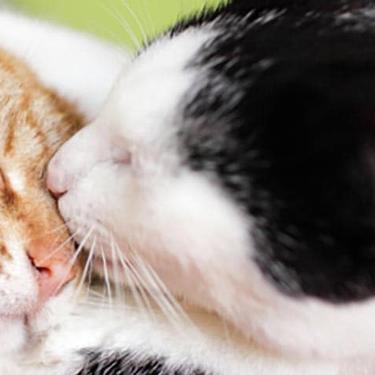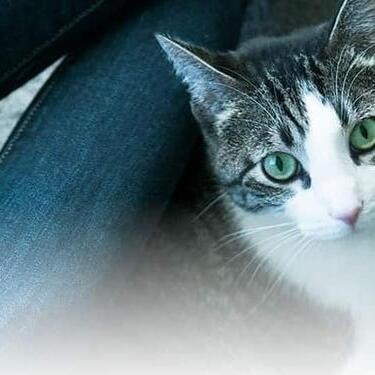
-
Find the right food for your petTake this quiz to see which food may be the best for your furry friend.Find the right food for your petTake this quiz to see which food may be the best for your furry friend.Featured products
 Puppy Large Breed Chicken & Brown Rice Recipe
Puppy Large Breed Chicken & Brown Rice RecipeVital nutrients to support 5 essential building blocks for lifelong health
Shop Now Puppy Sensitive Stomach & Skin Salmon & Brown Rice Recipe
Puppy Sensitive Stomach & Skin Salmon & Brown Rice RecipeDelicious, highly digestible recipe, gentle on stomachs. Nourishes skin & promotes a lustrous coat
Shop Now Adult Chicken & Barley Recipe Dog Food
Adult Chicken & Barley Recipe Dog FoodSupports lean muscle and beautiful coat for adult dogs
Shop NowFeatured products Adult Urinary Hairball Control Chicken & Rice Recipe Cat Food
Adult Urinary Hairball Control Chicken & Rice Recipe Cat FoodActively supports the health of the whole urinary system
Shop Now Adult 7+ Chicken Recipe Cat Food
Adult 7+ Chicken Recipe Cat FoodSupports energy level and beautiful fur in mature cats
Shop Now Kitten Chicken Recipe
Kitten Chicken RecipeVital nutrients to support 5 essential building blocks for lifelong health
Shop Now -
Dog
- Dog Tips & Articles
-
Health Category
- Weight
- Food & Environmental Sensitivities
- Urinary
- Digestive
- Joint
- Kidney
-
Life Stage
- Puppy Nutrition
- Adult Nutrition
- Senior Nutrition
Cat- Cat Tips & Articles
-
Health Category
- Weight
- Skin & Food Sensitivities
- Urinary
- Digestive
- Kidney
-
Life Stage
- Kitten Nutrition
- Adult Nutrition
Featured articles Water
WaterDiscover why water is the most important nutrient for your dog or cat to live a healthy life. Find out how much water your pet should consume each day.
Read More The Incredible Science Behind Your Pet's Microbiome
The Incredible Science Behind Your Pet's MicrobiomeLearn what a pet's microbiome is, how it contributes to your pet's gut & overall health, and why nutrition is important in maintaining healthy microbiomes.
Read More Pet Food Storage Tips
Pet Food Storage TipsDiscover how and where to store your dry, as well as canned, dog and cat food. Learn how to find the "best before" dates on all Hill's pet food packaging.
Read More -


Neutering offers benefits to both you and your beloved companion. The benefit of neutering a cat? Fewer unwanted litters and fewer parental worries for you.
Neutering (or spaying) is the process by which your cat's veterinarian renders her sterile. When male cats are sterilized, the process is called neutering. When females receive the same treatment, it's called spaying (nonetheless, you can refer to either procedure as neutering).
It's hard to accept, but there aren't enough homes for the cats currently in need of adoption. According to the American Society for the Prevention of Cruelty to Animals (ASPCA), 3.4 million cats enter shelters every year. By neutering your cat, you'll help reduce the overpopulation of this feline community. More importantly, however, spaying and neutering helps your cat live a healthier, longer life.
The Benefits of Neutering & Spaying
Prevents Diseases
Spaying your female cat before her first estrous cycle (going into "heat" or being able to breed) greatly reduces her risk of cervical cancer and eliminates her risk for ovarian cancer. Because removing the ovaries reduces the levels of hormones that encourage the growth of cancerous tumors, spaying reduces your cat's risk of mammary cancer as well.
Keep in mind there are other diseases resulting from natural cat behavior when they mate. Feline leukemia and feline AIDS are two diseases spread through the bites of infected cats to other cats, according to the VCA Hospitals (these diseases are different from human AIDS and leukemia, and cannot be transmitted from cats to people). By reducing your cat's urge to fight over mates and territory, you'll also reduce her chances of contracting these incurable diseases from other cats.
Reduces Fights
Unneutered male cats are driven by hormones to seek mates and defend their territory against intruders. So, two or more unneutered male cats in the same household can spell trouble. Fights tend to break out, especially if there's a female cat in heat nearby. By neutering your cats, you'll reduce their aggressive instincts.

Reduces Risk of Roaming
When female cats go into heat, both her hormones and instincts are urging her to find a mate. And if she's your only cat, she'll try to escape every time you open the door so that she can find one. Remember that males are also driven by hormones and the mating instinct, and will try their best to escape for the same reason. Both males and females are at risk outdoors of being injured as they cross roads and highways to mate. By neutering your cat, you'll reduce this wanderlust and find they're happy to stay put in the safe, comfy spot next to you on the couch.
Cleaner Home
Male cats spray their urine on vertical surfaces to mark their territory. And while the pungent odor of an unneutered cat's urine alerts other males that there's another guy nearby who has claimed the area as his turf, it tells females he's waiting for his opportunity to mate with her. An unneutered male cat in your house can be a messy business. Neutering a cat reduces or eliminates the urge to spray, and if they do, the scent should be much more mild.
Female cats also pass bodily fluids when they go into heat. These fluids also contain scents to alert males that a fertile female is nearby. By spaying your female cat, you'll eliminate the same problem.


Tasty Tips
When It Should Happen
Your cat's vet will recommend the optimal age at which she should be neutered. In general, most vets prefer to neuter a cat around the age of sexual maturity.
What to Expect
The surgical neutering procedure is done in a vet's office under general anesthesia. Your vet will explain it to you and give you specific instructions for pre- and post-operative care. Expect to withhold food and water from your cat the night before surgery and to bring your cat to the veterinary office by a particular time.
During surgery, your cat will be given an anesthetic so they won't feel or be aware of what's happening. For male cats, a small incision is made on the testicles, and the testicles are removed. The incision is closed with either dissolvable sutures or surgical glue. Male cats can usually come home with you the same night unless there are complications or special concerns. If so, your vet will tell you if you can pick your male cat up the same evening.
Female cats have a larger incision to remove the ovaries and/or the uterus. Because this is a larger incision in the abdominal cavity, she's are usually kept overnight for observation. Your cat can usually go home the next day.
Some vets fit the cat with a cone or Elizabethan collar, a paper or plastic sleeve that fits around the neck like a funnel. This keeps your pet from scratching, biting, or licking at the surgical site while it's healing. Most cats do not need special medication or after care. If your vet wants to see your cat again after the surgery, however, be sure to bring her in on time.
Will My Cat Be Different?
Probably not. After neutering, your cat will return to her old, playful self very quickly. Rest assured she'll still be the same cat you've always known and loved.
Feeding Cats Post-Neutering
Some cats gain weight more rapidly after neutering, so it's important to make sure kitty is kept active and fed right. Hill's® Science Diet® Adult Perfect Weight contains the right blend of nutrients and calories needed to help your cat maintain her optimal weight.
The benefits of neutering a cat far outweigh any drawbacks. Yes, it can be scary to bring your beloved pet in for surgery, but your concerns going in are small and well worth it when you consider the higher risks of unwanted kittens, escaping outdoors and getting into trouble with other animals. If you haven't already done so, talk to your vet about having your cat neutered.


Jeanne Grunert is a book author, blogger and freelance writer from Virginia. She cares for six rescued cats and a rescued dog named Shadow on her 17 acre farm in Virginia.
Related products

Supports energy level and beautiful fur in mature cats

Vital nutrients to support 5 essential building blocks for lifelong health

Supports lean muscle and beautiful fur for adult cats

Actively supports the health of the whole urinary system
Related articles

What is the best food for an overweight cat? Learn all about weight control food for cats, including what's in it and how it works.

Learn the different factors that might be contributing to your cat's weight gain, and how bigger doesn't always mean better.

Discover how to identify cat sensitive skin and what you can do to help your cat thrive from head to paw.

Brushing your cat's teeth is just as important as brushing your own. Learn signs or oral health problems in your cat and how to avoid them.

Put your cat on a diet without them knowing
Our low calorie formula helps you control your cat's weight. It's packed with high-quality protein for building lean muscles, and made with purposeful ingredients for a flavorful, nutritious meal. Clinically proven antioxidants, Vitamin C+E, help promote a healthy immune system.
Put your cat on a diet without them knowing
Our low calorie formula helps you control your cat's weight. It's packed with high-quality protein for building lean muscles, and made with purposeful ingredients for a flavorful, nutritious meal. Clinically proven antioxidants, Vitamin C+E, help promote a healthy immune system.

